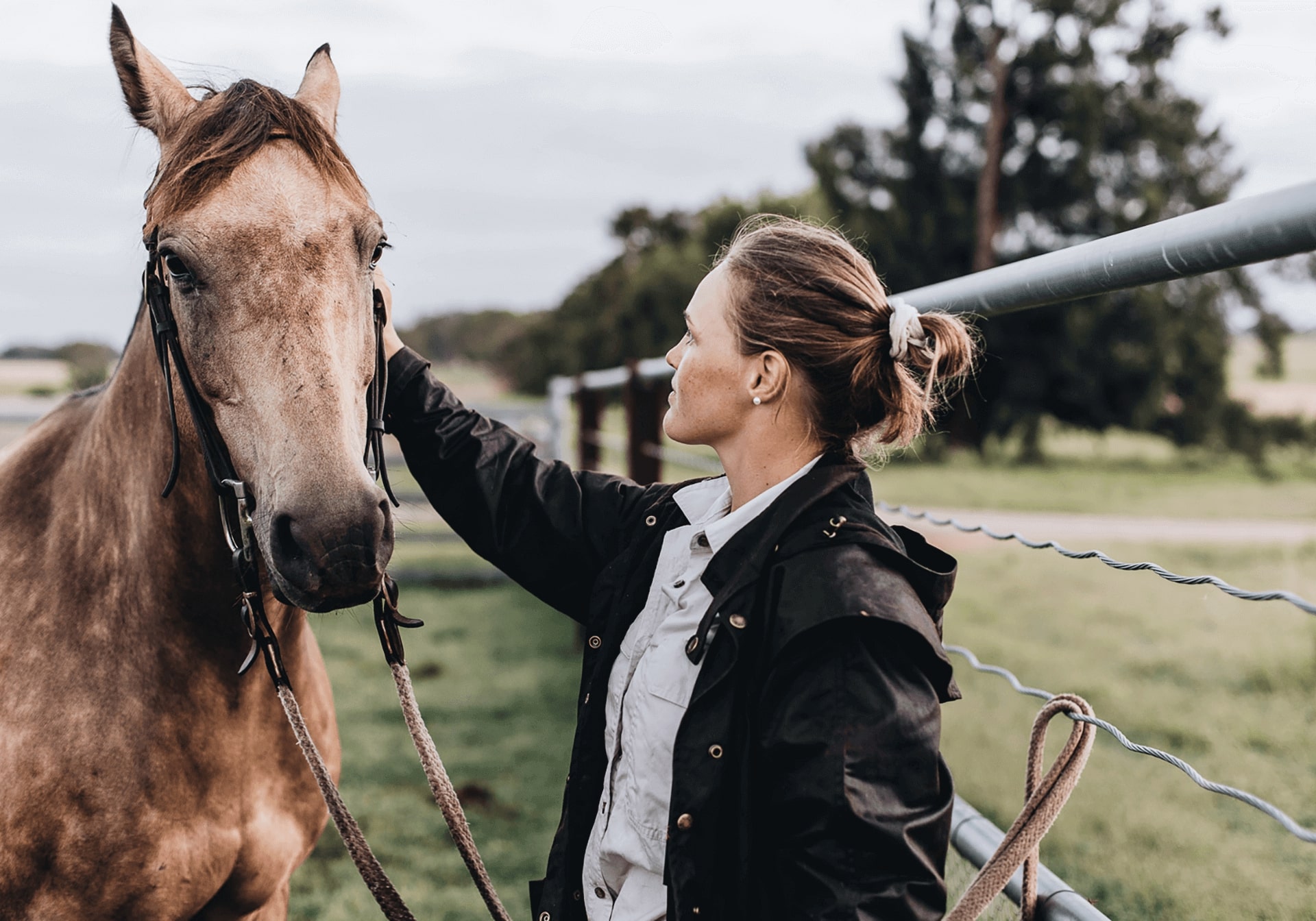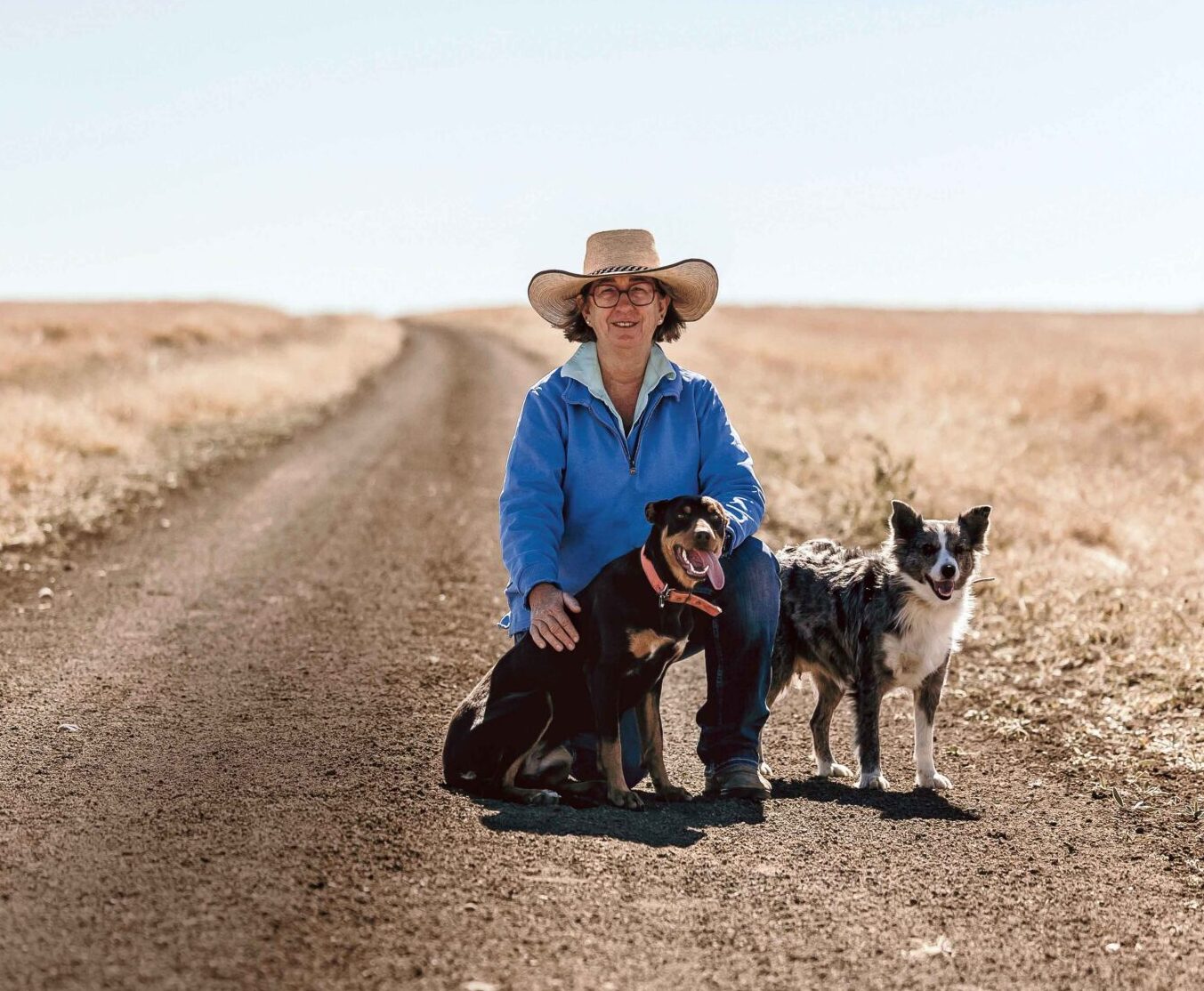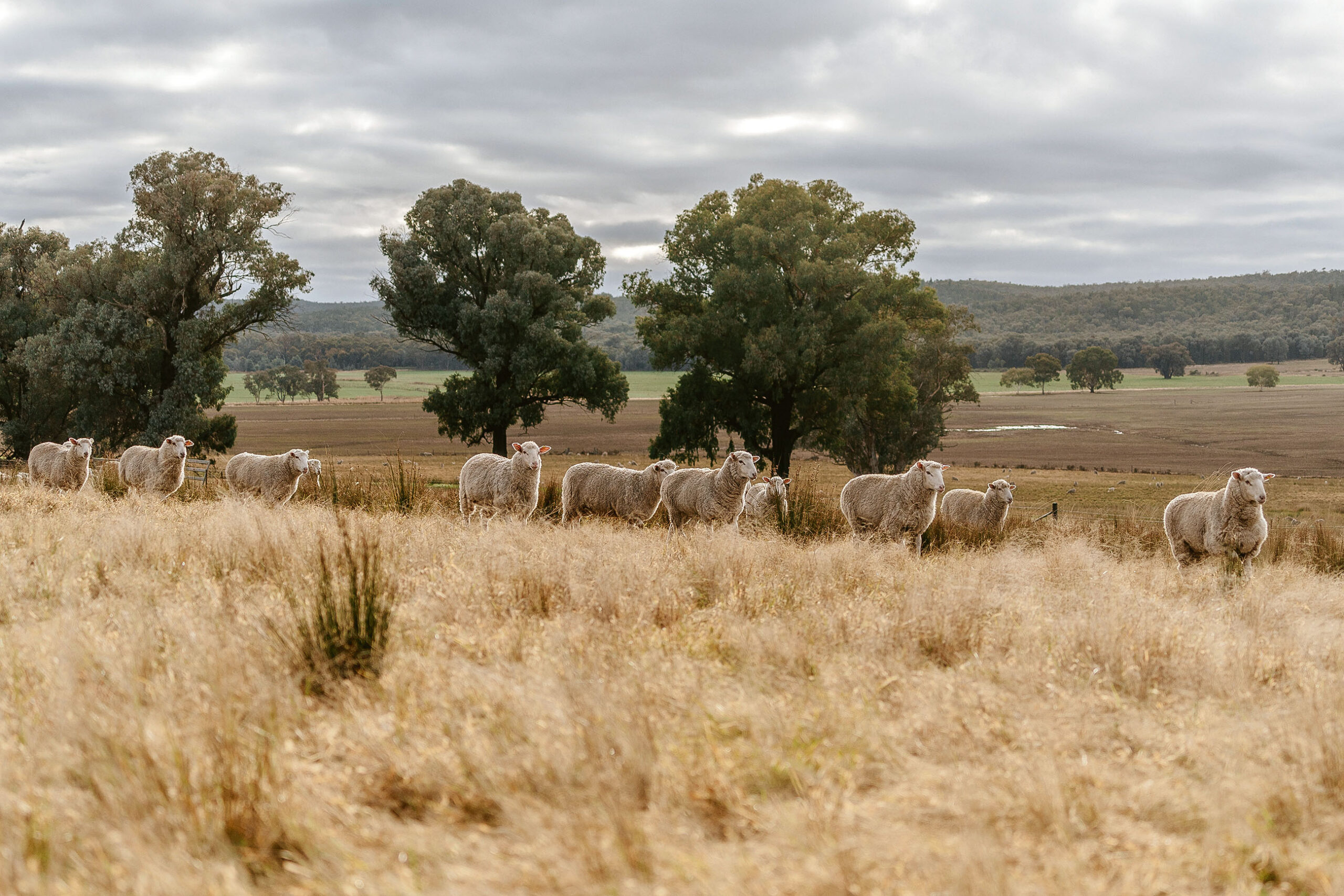Sign up to our mailing list for the best stories delivered to your inbox.
With labour shortages a problem across the country, rural businesses are looking at creative solutions for finding and retaining staff.
WORDS BY KATHERINE BEARD ILLUSTRATION JENNA VINCENT
Just as the song goes, finding the right person for the job at present is like looking for a needle in a haystack. A creative approach is a must-have. For instance, when New South Wales Western Plains farmer Doug Randall needed a stock handler for his property, there were no takers for months. Disappointed but not dismayed, Doug looked further afield and eventually found the right fit with an experienced stockman from New Zealand. A family with small children in outback Queensland struggled to replace their governess (who was leaving to continue her travels around the world, post-COVID-19). They found a short-term solution by advertising on social media specifically for later-year student educators needing practical experience.
A Victorian business owner became so frustrated trying to find qualified mechanics for his country motor electrician business that he advertised and hired two experienced mechanics from overseas, conducting interviews in the lobby of his hotel while on holiday. There are reports of regional medical practices advertising for doctors offering salaries of between $400,000 and $500,000 per year, plus a house and car, and they still can’t get any applicants. There are tales of staff shortages in our regional hospitals, such that hospital cleaners sit with dementia patients through the night due to a lack of nurses. Casual staff are working back-to-back shifts up to 12 hours a day in ski lodges because there aren’t enough employees to fill all the jobs.
Where have all the workers gone? Businesses are finding it increasingly difficulty to secure workers, with only one unemployed person per job vacancy, compared to three, pre-Covid. With unemployment at historically low levels (in September 2022, according to the Australian Bureau of Statistics [ABS], the unemployment rate remained at 3.5 per cent), how will the current situation change?
It must be said that the problem is not only in the regions. Metropolitan businesses face the same issues in attracting and retaining staff; the key problem being that there are not enough qualified staff for all the jobs that need filling. Indeed, almost a third of employing businesses across Australia are experiencing challenges finding staff, the ABS confirmed in survey results released in June 2022. Seventy-nine per cent of respondents said there were a lack of applicants and 59 per cent said that the applicants who applied didn’t have the right skills for the job. Larger and medium-sized businesses were more likely than small businesses to have difficulty finding staff.
According to the ABS, almost half of all affected small businesses measured their staffing challenges as having impacted them to a large extent. For instance, if you need four staff to run your café at full capacity, but you only have two on the books, how do you open your doors? Offer customers a limited menu and reduce the number of tables? Only open on weekends? How do you manage ordering stock and food wastage in those circumstances? These are some of the decisions facing business owners nationwide. The sun-drenched beachside town of Cowes on Victoria’s Phillip Island is usually famous for its foodie treats along the main street near the beach, but in January 2022, I was lucky to find anywhere at all to eat during the week. Was January 2023 a repeat? Of course, given the severe flooding of vast tracts of our agricultural farmland over the spring, we are fortunate to have fresh food to put on the table at cafés and restaurants, let alone staff to run them.
Dour predictions aside, the ABS survey found that 24 per cent of businesses reported that external factors such as uncertain economic conditions impacted their hiring decisions. Other factors included pay conditions (given historic low wage rates at present), the hours of work available, job location and the type of employment offered (part time, full time or casual). To further complicate decision-making for owners, around half of businesses surveyed reported increased operating expenses in June 2022 over the previous month, with 44 per cent of business owners expecting operating expenses to only increase again the following month. Inflation is making the costs of production and materials more expensive, with the cost of energy also rising dramatically. Add the loss of productivity and income due to business closures (due to Covid, flooding and other natural disasters) and it’s hard not to feel pessimistic.
In addition to transport, employment is intrinsically linked to family, accommodation, health resources and support services. Employees need (an affordable) roof over their head to be able to show up at work the next day. They need access to health services if injured and their children need schooling. There’s a reason ‘fly in, fly out’ workers don’t usually stick around on their days off: their needs are not serviced by the employment environment outside of work hours. For our regions, retention of employees is key, as workers form the backbone of towns. Servicing their needs of accommodation, medical services, food, entertainment, schooling and further education contributes to the economic output of a region and provides a framework for business growth and development. Combine those needs with the current regional housing squeeze and the challenges become increasingly clear.
The new federal government held its ‘Jobs and Skills Summit 2022’ late last year, bringing together leaders in fields of industry, government, and commerce to thrash out ideas post-Covid. Maintaining full employment and growing productivity are key concerns, with the government’s Issues Paper identifying that “the Australian labour market is currently operating at close to full employment, with the unemployment rate at its lowest level in almost 50 years”.
Reduced migration during the pandemic has exacerbated the difficulties faced by employers in finding staff, with the agricultural labour market particularly feeling the pain of a lack of workers available for the harvest season. Solutions have included the Pacific Australia Labour Mobility (PALM) scheme which allows eligible businesses to hire workers from nine Pacific Islands and Timor–Leste to meet the shortfall of Australian workers. The program provides for “eligible businesses to recruit workers for seasonal jobs through the PALM scheme for up to nine months (under the Seasonal Worker Program) or for longer-term roles between one and three years (under the Pacific Labour Scheme)”. Collating the harvest jobs available on one website, instead of via the employers, helps in providing access also. A quick scan of the Workforce Australia website illustrates that there are hundreds of harvest workers urgently needed right now across the country. Without the traditional flow of backpackers and itinerant labourers, however, crops will be left to languish, adding to farmers’ woes.
It’s not a perfect industry, with investigations highlighting the injustices and unfair work practices meted out to employees, and particularly to undocumented workers in remote areas. Stories abound of low wages and poor living conditions. There are also plenty of farmers trying to do the right thing and provide good working conditions who just can’t get enough staff to satisfy demand, leaving crops to rot on the ground. And it is a time-sensitive issue: you need the workers when the harvest is ready, not a week before or week after.
The issues aren’t limited to unskilled workers either. The Jobs Summit Issues Paper confirmed this and flagged immigration as a grave concern, identifying that the current system is difficult to administer and navigate as “there are now over 70 unique visa programs in Australia, each with their own criteria and subcategories”. Many of these migration programs fail to achieve their goals; for instance, only around 50 per cent of the short-term Temporary Skill Shortage Visas (designed to address industry labour shortages such as harvest picking) are processed within three months, thus defeating the point of the program. There are reports of current visa processing backlogs, the result being essential workers are prevented from coming into the country to access jobs.
Government and industry need to work together to align immigration needs with bureaucracy outcomes to urgently create workable solutions. The flow-on effect of the current backlog is negatively impacting service provision in our regions; for example, limiting the numbers of international doctors who make up a significant portion of the regional medical workforce.
The lack of accommodation in our regions also continues to impact the numbers of staff available. Regional business owners have responded by thinking creatively about how they can accommodate their respective staff, particularly those in tourist towns where accommodation is even more limited thanks to the success of Airbnb. Allocating accommodation on site is one solution, hiring rooms, caravan parks or even buying homes to rent to staff at a nominal rate are other solutions. Bussing staff in from larger towns is another solution. An entertainment venue in regional Western Australia owns a local four-bedroom house and employs a manager to live in the property so that touring bands have somewhere to stay (and someone to look after them) when they come through for gigs. In other industries, technology provides new solutions. Outsourcing call-centre staff and secretarial, data entry or marketing services provides a solution for many businesses.

Lorem ipsum dolor sit amet, consectetur adipiscing elit, sed do eiusmod tempor, ed do eiusmod tempor. Lorem ipsum dolor sit amet, consectetur adipiscing elit, sed do eiusmod.
Towering over Inverell’s central business district stand rows of two-storey Victorian-era shops and municipal buildings (including the famous pink Court House, built in 1886), all festooned with decorative flourishes and embellishments. Many are now occupied by beautifully curated clothing and giftware retailers. The historic buildings add an urban elegance to this busy country town, and clearly there is investment underway in rejuvenating and renovating these architectural gems; the Welder’s Dog hotel being a case in point.
Its rugged history is currently being polished for a new generation. Large windows with perching stools face onto the main street and a glass floor in the front bar allows you a peek into the microbrewery tucked into the cellar. Thoughtful make-your-own cheese platters are available next to the bar, along with a wide selection of locally brewed craft beer, including their famous ginger beer. Another great example of Inverell’s regional renaissance is the AK Bellinger gallery owned by former lawyer Allison Bellinger. Located in the main street, the gallery combines the best of both worlds: a majestic historic shopfront, a curated selection of art and a strong digital presence reaching an online clientele scattered around the country.
Accommodation in Inverell is still affordable, with some house prices under $400,000. The town is attractive, with strong service and retail offerings; schools are good with boarding schools also available nearby in Armidale and Brisbane. So why is the town short on workers?
For Rachel and David McLennan, Inverell is home. David is a principal at Forsyth’s Accounting firm while Rachel, also an accountant, provides management accounting and business management for local businesses, including several medical practices. Both have identified a gap between the high levels of professional employment available and low numbers of staff to take on roles. The gap extends across professional and traditionally blue-collar industries.
Rachel says that the regional medical industry is at a turning point. The shortage of general practitioners (GPs) begins at the university level. Only 14 per cent of medical graduates sign up to be GPs, with the balance gravitating towards specialisation. As a result, registrar placements to rural centres have declined due to lower numbers entering their training programs, she says. “We are therefore seeing more practices drawing on an overseas workforce. However, the work involved in this process is immense and expensive and can often take 12 to 18 months to source a doctor from overseas. There are also many shortages in professional staff (such as nurses, practice managers and administrative staff); for example, there are currently four positions available at the local hospital.” The ageing of the current regional medical workforce is also an issue. Rachel explains, “Many of our Inverell doctors are in their sixties and seventies and are in the last stages of their working life. We need more doctors urgently.” The upshot of all this is that access to medical services becomes increasingly compromised. As Rachel explains, “We’re flying patients out at the weekends because we have no locum doctor at the hospital to cover shifts. The hospital facilities have received an upgrade, but like many regional centres, this has not attracted professional doctors or staff to the region. Unless we address the doctor shortages, then flying patients out will become the norm!”
In response to the crisis, the industry is making significant investments in technology, such as encouraging customers to book online, increasing access to Telehealth appointments and using overseas customer call centres to manage administration functions for a practice. Rachel suggests more could be done to offer financial incentives to medical students and graduates to train in regional centres with bonuses offered if they then choose to stay and practice in a rural area.
David operates a regional accounting firm with 15 principals and 130 employees across five locations, which brings similar challenges. With offices in Armidale, Tamworth, Gunnedah, Inverell and Coonabarabran, Forsyth’s number-one priority is to employ locally; however, “the lack of team members available regionally has made this task difficult”. David explains, “We offer flexible work arrangements wherever possible and, to be frank, staff can work from the Moon as long as the work gets done.” He acknowledges that the pandemic and immigration slowdown has contributed significantly to staffing shortages. “There are less accountants available, and then we face wage pressure from the mining sector with their high salary offerings,” David explains. “I have farming clients who can’t get station hands because they are unable to match the salary available in other sectors.”
The current staffing shortages permeate all industries in the region, including large employers such as the abattoir (with 800 staff) and Boss Engineering. David would like to see the government working quickly to open up immigration channels and help alleviate the strain.
“Strategic planning is also needed at a local level to address issues such as an ageing professional workforce (including dentists, doctors and solicitors) and the lack of available rental housing. It’s challenging to attract staff to a town if there is nowhere to live and limited access to professional services. While the housing market remains well priced, the rental market is very tight in Inverell,” says David.
Another creative solution is the outsourcing of Forsyth’s accounting work to a team of accountants in Chennai, India. “We call it our Chennai office,” explains David. “We contract directly with one firm that only does Australian income tax returns. The employees are qualified accountants, only work for us, operate within a secure data environment and there is the opportunity to source additional staff at peak times, as needed.” This tactic provides flexibility for fluctuating workloads and supports the Australian team at peak periods.
Progressive and creative approaches are the way forward as skills and staff shortages continue to bite in our regions. In-depth consideration of issues such as the creation of additional housing and retention of regional professional services; incentives for sector development; and new upskilling and retraining opportunities are required. With luck, as the immigration squeeze eases, there will be an influx of new staff to take up the wide variety of opportunities already available in our regions, allowing more people to make hay while the sun shines.

In her youth, she struggled to find her place. Now, Louise Martin knows exactly where she needs to be: in Tambo, Queensland, making sure rural children get the education they deserve.

Writer and photographer Alexandra MacAlpine finds ways to hold onto moments of peace amid the busyness of station life.